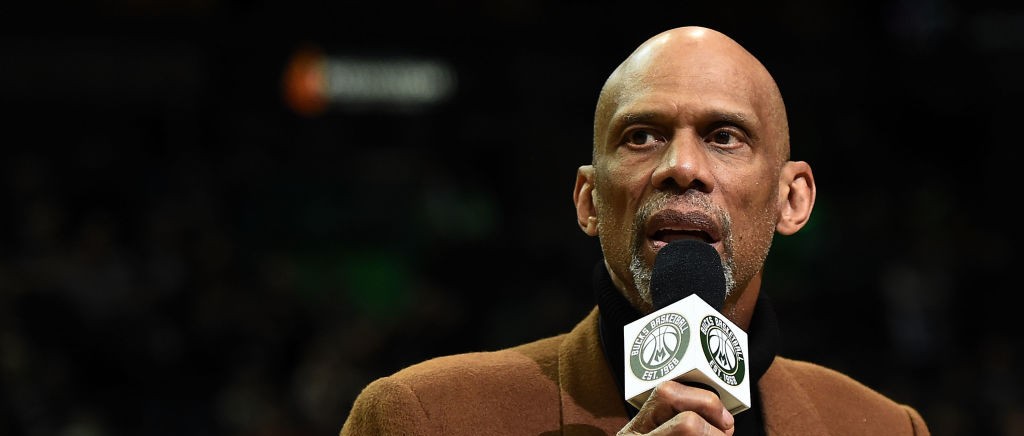
Current NBA players, ranging from veterans like LeBron James to youthful stars like Trae Young, are making their voices heard as protests in response to the killing of George Floyd continue across the country. With that as the backdrop, one of the more prominent voices on social and racial justice in the sports world, NBA legend Kareem Abdul-Jabbar, visited with ESPN’s Rachel Nichols on The Jump during Thursday’s show and, in unsurprising fashion, provided unique insight on the current climate.
When prompted on whether 2020 could be a turning point in the United States of America, Abdul-Jabbar indicated that he believes that is already the case.
“It already has been a turning point, given what has happened with the coronavirus and all of this racial violence that we’ve become aware of,” Abdul-Jabbar said. “We have an opportunity now that it’s got everybody’s attention. We can do something now. We’ve got everybody concerned and aware that certain things aren’t right. We can do something now. We can find a way to hold bad cops accountable. We can find a way to make sure that everybody gets heard, everybody gets the opportunity to vote and have their voice heard politically. This is a good thing for our country. It’s not a bad thing, and I hope people get to understand that and support it.”
During the interview, Nichols referenced the faction that publicly cites peaceful protest as preferable, while players say that those people don’t condone that activity either, with Colin Kaepernick as an example.
“They don’t want the subject brought up at all,” Abdul-Jabbar indicated in response. “As far as they’re concerned, everything is fine. We can’t continue with that dynamic. Too many people have lost their lives. And it’s a downward force on everything that we’re trying to do in our country.”
Viewing athletes, especially those who are still active in their sports, as potential role models is not a new phenomenon. With that said, it has been encouraging to see many prominent stars using their voice in a productive way during this time, with Abdul-Jabbar also referencing the power that can have in motivating the next generation.
“I think these athletes, what they have to say is important,” he said. “Because they are the ones that the kids in their neighborhoods, the kids from their hometowns, they look up to them and they get inspiration from them and they find out about things through them. These people are icons in their communities and they make a difference. When kids see that their heroes are concerned about civil rights and human rights and just what’s going on in our country, they get it. It’s important.”
Though 2020 is not even half over at this juncture, the notion of the year as a “turning point” could be a pivotal one, especially if people across the country and the world do their part to promote reform.
“The way we make sure it continues is to speak about it,” said Abdul-Jabbar. “People need to make friends with people who don’t look like them. That will go a long way to eliminating all of this. And that’s because we’re all Americans. We’re all raised here and raised on certain values that are the best of any nation in the world. We’ve gotta live up to that.”
